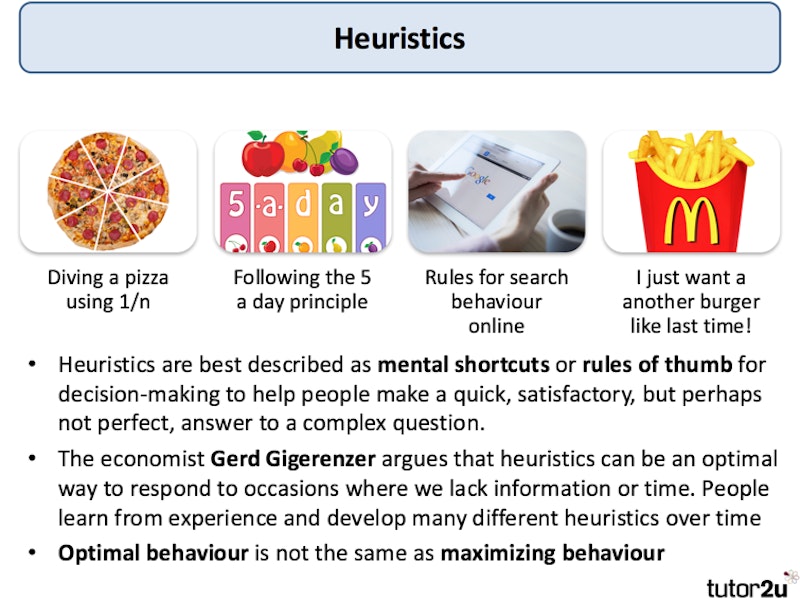Study Notes
Bounded Rationality (Behavioural Economics)
- Level:
- A-Level
- Board:
- AQA, Edexcel, OCR, IB
Last updated 21 Mar 2021
Bounded rationality suggests that consumers and businesses opt to satisfice rather than maximise. They will use rules of thumb and approximations when active in different markets
Most consumers and businesses do not have sufficient information to make fully-informed judgements when making their decisions. The increasing complexity of products also makes life difficult

Heuristics
In response to bounded rationality, many people fall back on "tried and trusted" heuristics when making their decisions and choices.
Heuristics are best described as mental shortcuts or rules of thumb for decision-making to help people make a quick, satisfactory, but perhaps not perfect, answer to a complex question.
The economist Gerd Gigerenzer argues that heuristics can be an optimal way to respond to occasions where we lack information or time. People learn from experience and develop many different heuristics over time
Optimal behaviour is not the same as maximizing behaviour

You might also like

Why you shouldn't copy your classmates!
16th May 2015

Paul Ormerod: Are the Markets Telling the Truth?
28th January 2016
Nurofen fined heavily for mis-leading consumers
16th December 2016

Seven Amazing Optical Illusions
21st February 2017
Intention-Action Gap (Behavioural Economics)
Study Notes
Scottish minimum alcohol price reduces demand
26th September 2019
What is an economic model?
Study Notes
Behavioural Economics: The Power of Default Choices
Topic Videos
Daily Email Updates
Subscribe to our daily digest and get the day’s content delivered fresh to your inbox every morning at 7am.
Signup for emails